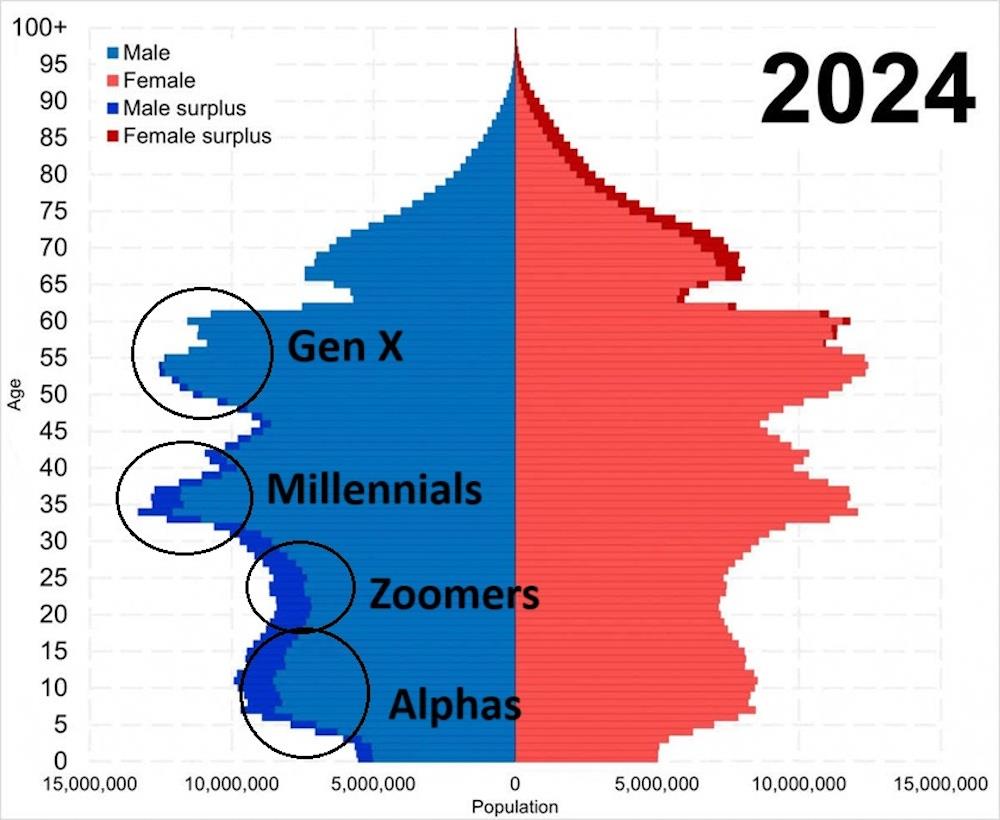(MENAFN- Asia Times)
In discussions about China's economy, the issue of demographics comes up quite a lot. In 2022, China's population
began to decrease
(and coincidentally, India's population
surpassed China's ). The country's fertility rate, which had already fallen below replacement levels decades earlier,
fell again recently, to just 1.09
- one of the lowest rates in the world, and even lower than Japan.
This is prompting a lot of hand-wringing about the future of China's economy, both from people within China and from foreign observers. For example, here's a quote in the WSJ :
Here's The Economist :
And here's the most dire post I could find, from The Conversation :
Now, I absolutely do think this is a problem for China in the long term . In fact, China is far from unique in this regard - every developed country is aging rapidly, and most developing countries aren't far behind.
And there really are negative consequences to population aging. I wrote about those problems in this post .
In fact, the shrinking of the population isn't actually the problem - it's the aging. Rising old-age dependency ratios do put a huge economic burden on working people, and an aging workforce probably does reduce innovation and productivity growth. This is true despite automation. A world top-heavy with old people will be a world where young people have to toil harder and harder, all over the globe.
But in the short term, I think the catastrophizing over China's demographics is overdone. Americans searching desperately for a reason to dismiss China's competitive threat might be tempted to seize on the country's low fertility. But China's economic might is not going to go“poof” and disappear from population aging; in fact, as I'll explain, it probably won't suffer significant problems from aging until the second half of this century.
Meanwhile, there's an even greater danger that China's leaders will panic over the country's demographics and do something very rash. My former Bloomberg colleague Hal Brands
has argued
that China may start a war in Asia in the next few years out of fear that if it waits any longer, its power will decline - similar to how Germany rushed to war in 1914 because its leaders believed their window was vanishing. That worry is unfounded, as I'll show. But it wouldn't be the first
rash blunder that Xi Jinping has made .
So it would be good for both Americans and Chinese people to understand the non-urgency of China's demographic situation.
China has a baby bulge in the pipeline
The first and most important reason that China's demographics are non-catastrophic is that they've got a large generation of young people, currently aged 5 to 15, that will relieve demographic pressure in the coming years.
Wikipedia has a good
animated population pyramid
for China, with data taken from UN forecasts. Here's what the pyramid looks like for 2024. I've annotated the graph with generation labels, roughly corresponding to the similar generations in the United States:

Adapted from Tweedle –
MENAFN03072024000159011032ID1108404859
Legal Disclaimer:
MENAFN provides the information “as is” without warranty of any kind. We do not accept any responsibility or liability for the accuracy, content, images, videos, licenses, completeness, legality, or reliability of the information contained in this article. If you have any complaints or copyright issues related to this article, kindly contact the provider above.